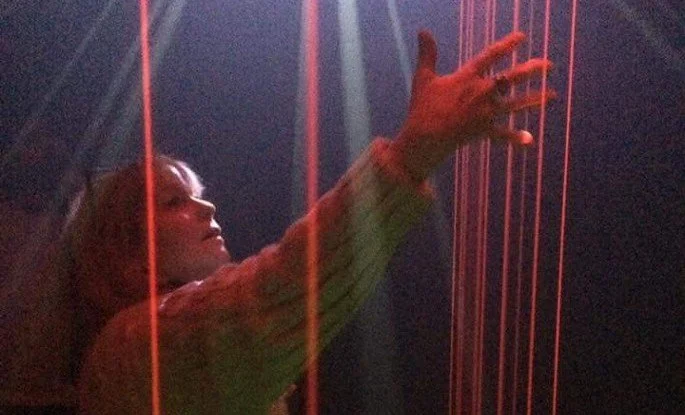“From noon until three in the afternoon darkness came over all the land. About three in the afternoon Jesus cried out in a loud voice, “Eli, Eli,lemasabachthani?” (which means “My God, my God, why have you forsaken me?”).
When some of those standing there heard this, they said, “He’s calling Elijah.”
Immediately one of them ran and got a sponge. He filled it with wine vinegar, put it on a staff, and offered it to Jesus to drink. The rest said, “Now leave him alone. Let’s see if Elijah comes to save him.”
And when Jesus had cried out again in a loud voice, he gave up his spirit.”
Elijah didn’t come to save him. God didn’t come to save him.
It was finished.
In death.
This is one of the profound elements of the Christian story and one that is overlooked.
Many people have rejected the idea of a God of life and love due to the tremendous suffering we see all around us. If there is a loving God, why doesn’t God do something about suffering? It’s a question we have all heard, or asked, or wondered about. Maybe we have decided it’s an unanswerable question. Maybe we have set it aside. Maybe we have found answers that satisfy us. Answers like: evil and suffering isn’t from God, but from satan, or from mankind. Answers like: suffering is due to the falleness of creation. Answers like: suffering is what transforms us into the likeness of Christ, therefore it is part of God’s plan. Answers like: it’s my fault, I didn’t have enough faith.
But if we are honest, when we are in our darkest hour of pain and suffering, we cry out, “my God, my God WHY have you forsaken me?!” WHERE IS GOD IN THIS?!?!? Is God insensitive to my pain? Does God hear me? Does God exist?
Perhaps the answer is not “no, God has not forsaken you.” But rather, “yes – God has forsaken you.”
When God forsakes you, God forsakes God’s very self.
That is one of the profound truths being revealed in the crucifixion. In death and in suffering – God forsakes God’s very self.
If God is life and love then every incident of death and evil is God forsaking himself. Every incident of pain and suffering is life and love forsaking itself, forsaking you, forsaking all that is life and love.
But God is not JUST life and light and love because life cannot exist without death. Death must occur for life to occur and that is the second profound truth in the crucifixion. Without death there is no life. So in the very nature of life itself, death is built in. So God is life. God is death. And in death, God is riven from God’s very self.
At the core of God is a forsaking, a giving over to death in order that there may be life.
“Listen carefully: Unless a grain of wheat is buried in the ground, dead to the world, it is never any more than a grain of wheat. But if it is buried, it sprouts and reproduces itself many times over. In the same way, anyone who holds on to life just as it is destroys that life. But if you let it go, reckless in your love, you’ll have it forever, real and eternal.” John 12:23-25
“What you sow does not come to life unless it dies.” I Cor 15:36
“If anyone wants to be a follower of mine, let him take up his cross and follow me. Whoever wants to save his life must lose it” Matt 16:24-25
I used to read these types of verses thinking they were about living a life of self-denial and sacrifice. Now I see them as verses that tell us that life and death are bound up together. Without death, there is no life. We see this clearly in nature and accept it readily. It’s harder when it’s our life and the things or people we love dearly.
Wherever there is good – evil is right there.
Wherever there is life – death is.
The plant dies to produce the seed. Plants die as they are eaten as food. Animals die as they are eaten as food. Crazy weird beetle larva paralyze their prey and eat them alive. A parasite called a strepsiptera eats its mother from the inside out to be born.
In death, life springs forth.
A couple of years ago I was on a silent retreat. One of the exercises was to write down all the things in my life that had been pivotal, transformational, life changing. What had made me who I was today? It was interesting to see that most of them were painful things. Suffering. And yet, most of the suffering had produced life in me, growth, goodness.
In death, life springs forth.
(To comment, click on the title of this post, “My God, my God, why have you forsaken me?”)







